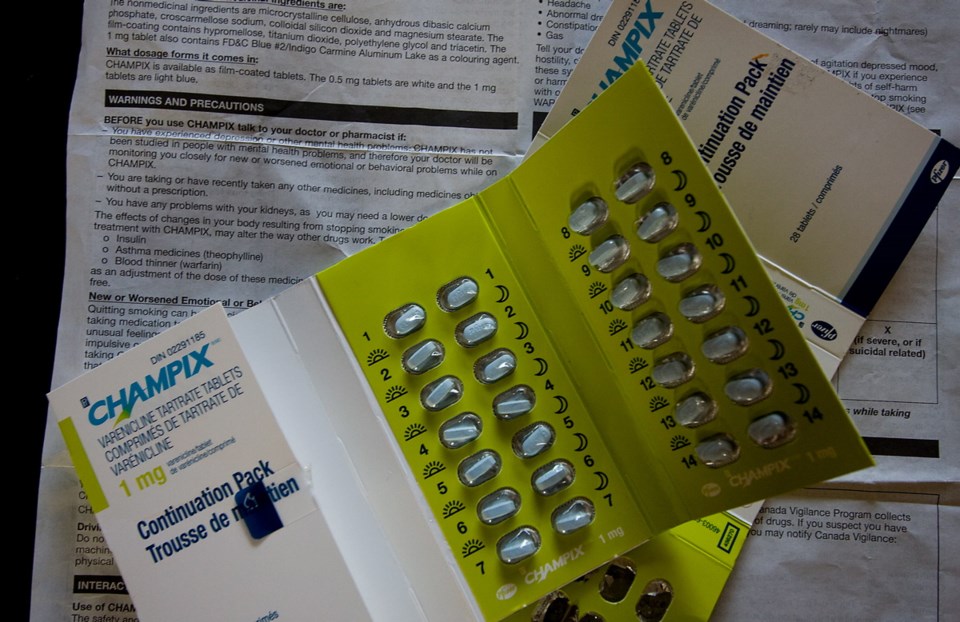Critical national drug-safety research for patients is being adversely affected because B.C. continues to delay and deny researchers data in the aftermath of a sweeping privacy-breach investigation in 2012, says a health-policy expert.
Dr. David Henry, a University of Toronto professor and public-health expert, joined the NDP in a news conference call Monday.
NDP health critic Judy Darcy and MLA Adrian Dix are calling on the government to restore full and timely access to health data for researchers. They also want the government to restore funding to the drug-safety watchdog Therapeutics Initiative, based at the University of B.C.
“We still are struggling to get access to data in B.C.,” said Henry, who is executive co-lead of the Canadian Network for Observational Drug Effect Studies, a national network of provincial data centres and investigators who perform drug-safety analyses. The researchers use health data that has been stripped of names and any identifying information.
“Of the 11 studies we’ve completed and reported, in only five have we been able to access B.C. data,” Henry said. “All I’m concerned about is what appears … to be an unnecessary, bureaucratic, unwieldy system for drug access — this is de-identified data, remember — that is needed for a national program.”
The ministry data is accessed through Population Data B.C. at UBC, which manages all independent academic research projects requesting B.C. data.
B.C. Health Minister Terry Lake admits access to data was suspended as part of the investigation and subsequent safeguards and training put in place caused delays, but says that access has now improved.
“All of the procedures we’ve put in place have increased the firewalls protecting people’s privacy, but also have increased people’s access in terms of the data that’s needed [for] researchers,” Lake told reporters.
Henry said hundreds of thousands of individuals’ data needs to be used at a time by researchers comparing the effects of drugs and dosages on different people. But access to B.C. information is still slow, he said.
The national network is currently looking at the number of women who get pregnant on the acne drug Accutane, which can cause damage in a fetus, for example.
“But we waited a year for that data [from B.C.],” Henry said.
Researchers want to know how many women on the drug are getting pregnant. If it’s a lot, better information needs to be provided to patients and doctors, Henry said.
“That message is going to be delayed because we’ve waited for these data,” he said, adding B.C. contributes perhaps the best data in the country, from Pharmacare/Pharmanet, the Medical Services Plan and hospital programs.
Other provinces have expedited data access for the national program to ensure important drug-safety questions are answered and information gets to the public, Henry said. “We’re asking that that similar expedited access in B.C. that was there in the start is restored to enable this important program to continue.”
Prior to the privacy-breach investigation started by the Health Ministry in April 2012, the Health Ministry was sharing health data with Therapeutics Initiative and approved researchers at the universities of B.C. and Victoria as part of major drug-safety and effectiveness studies.
At that time, Therapeutics Initiative had an arm’s-length contract with government giving the watchdog flexibility to review the topics it thought were important or feasible.
As a result of the privacy-breach investigation, the Health Ministry fired seven Health Ministry researchers and suspended the sharing of health-research data with the universities and the drug-safety watchdog.
Five months later, one of the researchers, UVic PhD student Roderick MacIsaac, committed suicide, and his review of the province’s smoking-cessation program was stopped.
That program involves giving out two controversial drugs, Champix and Zyban, for free.
Since data access was restored, Therapeutics Initiative has asked the government to restart the study, but was turned down. The government has no plans to restart it.
This year, the government apologized for MacIsaac’s “heavy-handed dismissal” and has rehired or settled lawsuits with the majority of the other researchers. Two wrongful-dismissal suits remain outstanding.
The Health Ministry said Monday that all data-sharing access has been restored and Therapeutics Initiative has full access to ministry data for studies that the government has paid the watchdog to perform.
The drug-safety watchdog was operating with a budget of $1 million before the investigation, but that funding has been slashed in half.
Therapeutics Initiative says it can only get approval and funding for two to three projects using ministry data each year, and can’t access data from the period of the freeze, September 2012 to September 2013.
For other studies, Therapeutics Initiative must apply for the information through Population Data B.C., pay about $15,000 to $25,000 and wait.



